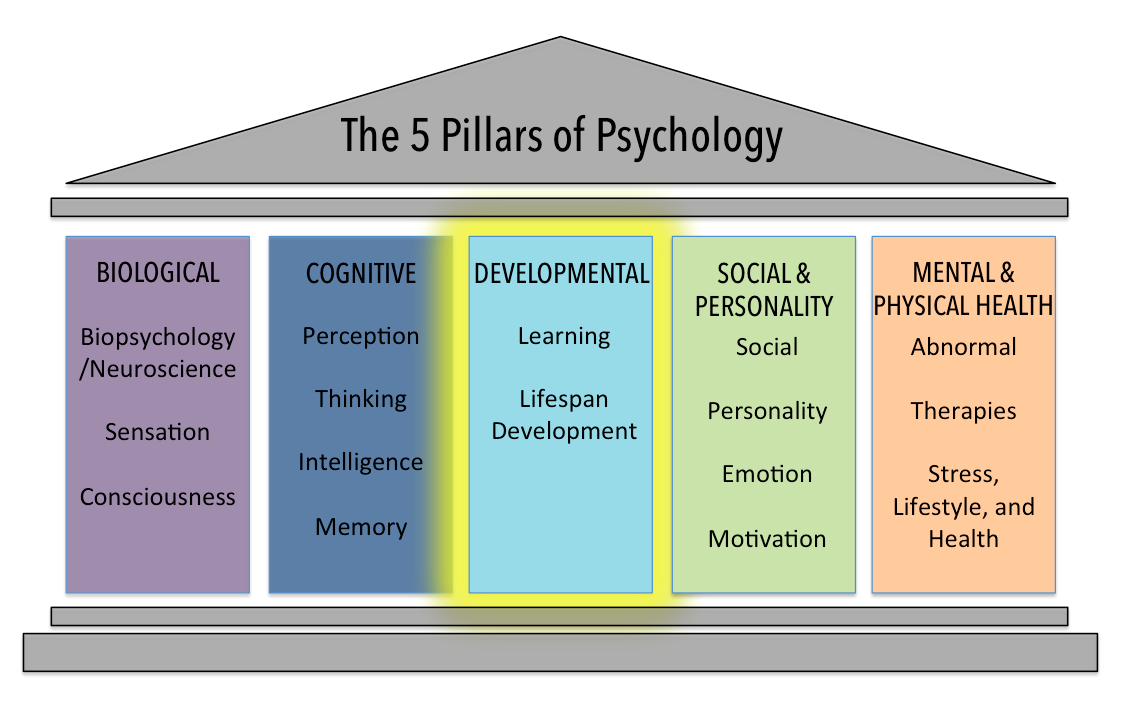The Developmental Domain
Why do toddlers think differently than teenagers? What’s the best way to break a bad habit? These are the kinds of questions explored in the developmental domain of psychology.
developmental psychology
Developmental psychology is the scientific study of how people grow and change across the lifespan. While early research emphasized physical maturation, developmental psychologists also study changes in:
-
Cognitive abilities (thinking, memory, problem-solving).
-
Moral reasoning (understanding right and wrong).
-
Social behavior (relationships, identity, cultural roles).
-
Emotional development (self-regulation, empathy).
Early developmental psychologists laid the groundwork for understanding how we grow and change from infancy to adulthood. Their research illuminated key differences in physical, cognitive, and social abilities between young children and adults.
For instance, very young babies do not understand object permanence—the idea that objects continue to exist even when out of sight. While adults know that a toy hidden behind a curtain still exists, infants often act as if it has disappeared. Later research (Munakata et al., 1997) has debated the age when this ability develops, showing that Piaget’s work was foundational but not the final word.
Today, developmental psychologists study growth from infancy through old age, exploring topics like language acquisition, identity development, aging, and the effects of culture on lifespan development.
Behavioral Psychology
Another key part of the developmental domain is learning and behaviorism.
behavioral psychology
Behavioral psychology focuses on observable behavior and how it is shaped by the environment. Behaviorists emphasize the principles of learning and conditioning, rather than internal mental states. Key concepts include:
-
Stimulus and response
-
Reinforcement and punishment
-
Classical conditioning (Pavlov)
-
Operant conditioning (Skinner)
-
Observational learning (Bandura)
Early researchers such as Ivan Pavlov, John B. Watson, Edward Thorndike, and B. F. Skinner laid the foundation of learning theory. Today, behaviorist principles are widely applied in behavior modification techniques, used to treat mental health issues, improve education, and support habit change.
